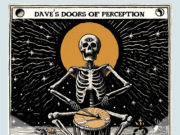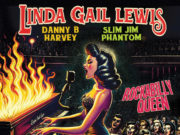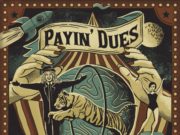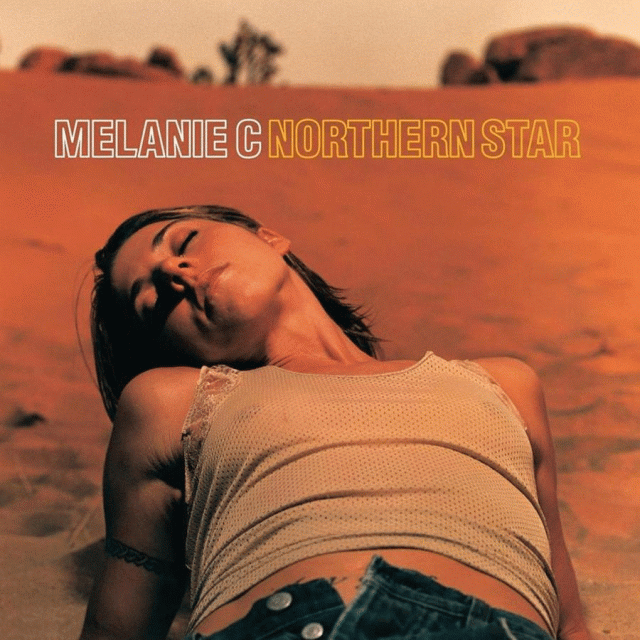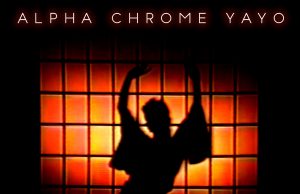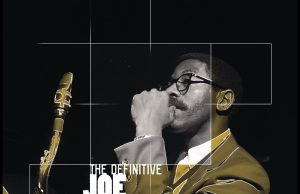Two decades ago, new albums from Sporty Spice, Bryan Ferry, Smithereens, Slipknot and others were spinning away in my portable CD player. Here’s what I had to say about them back then (with some minor editing):
 Melanie C
Melanie C
Northern Star
It isn’t easy being Sporty. Next to Posh, Scary, Ginger and Baby, poor Sporty always seemed more like Leftover Spice. But once Geri scarpered and the rest of the bunch got busy getting married and having babies, Sporty — known to her folks and Melanie Chisholm and to fans as The Spice Who Can Actually Sing — finally got the chance to prove she’s her own Girl, er, woman. So, to hammer the point home, she got a new ’do, scored some new tattoos and put out a solo album on which she confidently asserts a musical identity distinct from Sporty Spice.
Too bad that identity already has a name: Madonna. And too bad she more or less already made this album — and called it Ray Of Light. Not that I’m accusing Mel of plagiarism, mind you. But with its synth-driven sound, trippy vibe and swirling dance-pop production, Northern Star sure does sound like the sincerest form of flattery. But then, how could it sound like anything else? Mel teamed up with no less than three Madonna collaborators — songwriters Marius De Vries and Rock Nowels and, more significantly, producer William Orbit, who was also behind the board for Ray Of Light. With that crew at the controls, it’s a wonder that every part of Northern Star doesn’t sound like the Material Girl.
In fact, it’s the rare moments when Melanie manages to shuck off the Madonna cloak that make Northern Star briefly shine. Moments like the Garbage-y, guitar-based alt-rock of Ga Ga, one of several tunes produced by Rick Rubin. Or the distorto synth-slam of first single Goin’ Down, one of several songs that might have been better produced by Rubin. Finally, there’s the vibrating go-go pop of leadoff track Go! Heck. Including her duet with Bryan Adams would have been an improvement here — and that’s the first time I have used the words Bryan Adams and improvement in the same sentence.
Sure, Mel lives up to her billing as the one Spice who doesn’t need a bucket to carry a tune. But that isn’t enough to make Northern Star appeal to anyone besides the faithful. Looks like it isn’t going to get any easier being Sporty.
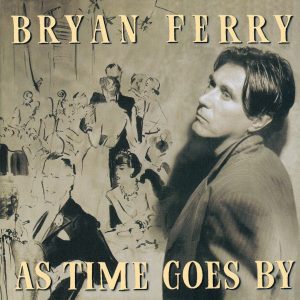 Bryan Ferry
Bryan Ferry
As Time Goes By
Bryan Ferry has never met a song he didn’t like. From his unique takes on Bob Dylan and The Rolling Stones to classics like You Are My Sunshine, the erstwhile Roxy Music frontman always seems to appreciate a good tune even if he didn’t write it. As Time Goes By is, by my count, his fourth all-cover solo outing — and his most ambitious and cohesive set to date, consisting of classic tunes from the ’30s and ’40s, rendered more or less authentically with plenty of strings and period-appropriate arrangements. Which is not to say predictable — Ferry, as always, puts a fresh spin on the material, giving ballads like Lover Come Back To Me a ragtime bounce or turning I’m In The Mood For Love into a sweeping bossa nova. And of course, his icy-cool cabaret croon has a frail sophistication unlike any other vocalist in rock. Some of his cover discs have seemed like tossed-off stopgaps, but it’s clear he’s put time into As Time Goes By. It’s worth your time.
 The Smithereens
The Smithereens
God Save The Smithereens
What with the epitaphish title and The Smithereens’ long absence from the scene, you’d be forgiven for thinking this is a posthumous release. In fact, it’s the sixth album from these recently reformed New Jersey power-popsters. And while God Save The Smithereens doesn’t have a riff-rock chart smasher to equal Girl Like You, it appears their five years away have done them no harm. These 13 tracks are more fine examples of the band’s skilled songcraft, densely packed with jangly guitars, smoky Elvis Costello-style crooning from Pat DiNizio and an overall ’60s Britpop vibe. Perhaps a better title would be Long Live The Smithereens.
 Slipknot
Slipknot
Slipknot
There must be something in the water in Des Moines. How else do you explain the existence of Slipknot, a nine-piece rap-metal aggregation whose wardrobe consists of bring-out-the-gimp bondage masks and matching numbered jumpsuits? And their seizure-inducing sound is just as disturbingly aberrant: Detuned guitars, speed-metal drums, frenetic turntablism, nightmare lyrics and psych-ward vocals, melded into a provocative sonic assault administered with all the subtlety of a force-feeding and all the power of a Drano mouthwash. Be afraid. Be very afraid.
 Public Enemy
Public Enemy
There’s A Poison Goin’ On …
On their first new disc in five years — and the first high-profile album distributed via the Internet — Chuck D. and Public Enemy are still fighting the powers that be: The white-controlled music industry, mainstream media and government. And like the seasoned combatants they are, Chuck, Flavor Flav, Terminator X and Prof. Griff are a little slower and less flashy then they used to be. Instead of the old rope-a-dope theatrics and fancy footwork, There’s A Poison Goin’ On … relies on solid, simmering grooves, slowly swaggering beats and well-placed verbal jabs. But even if they can’t knock you out anymore, you can bet on PE to go the distance, bloodied but unbowed.
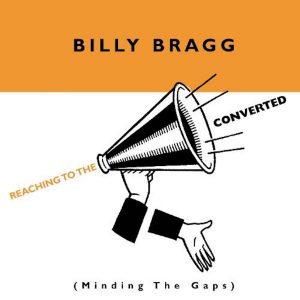 Billy Bragg
Billy Bragg
Reaching To The Converted
I know I’ll probably be drummed out of the Rock Critics’ Union for admitting this, but for a lot of years, I was not a big fan of Billy Bragg. With his angry folk-punk troubadour stance, his socialist zealotry and his thick-as-Guinness accent, he used to strike me as too serious, too strident, too drearily British. But even Bragg has his lighter side, as this collection of career leftovers proves. Consisting of unreleased tracks, singles, B-sides and cover tunes — normally the most playful elements of any artist’s repertoire — Reaching To The Converted gives a glimpse of Bragg the comedian (Walk Away Renee), Bragg the romantic (Ry Cooder’s Tattler) and Bragg the Beatles fan (She’s Leaving Home). It would be enough to make a convert of anyone. Including me.
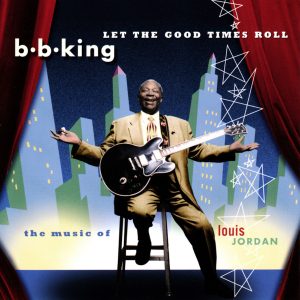 B.B. King
B.B. King
Let The Good Times Roll: The Music Of Louis Jordan
Pretty much every retro-swing band in America has been covering, borrowing and blatantly ripping off jump-blues king Louis Jordan for years now. So, you might wonder, does the world really need another album of Jordan covers? If it’s this gem from blues legend B.B. King, it most certainly does. Let The Good Times Roll is no jumping-jive, zoot-suit riot. King, not surprisingly, hews closer to the blues than the jump of Jordan’s sound, finding the soulful centre of classics like Knock Me A Kiss and substituting his fluid fingerwork for Louis’ yakety sax. Not that this hour-long affair is a blues album by any stretch. Backed by a crack band led by Dr. John, King cuts loose and lives up to the title on smokin’ cuts like Choo Choo Ch’Boogie and Caldonia. In the words of Louis himself, if you don’t dig this, Jack, you’re dead.
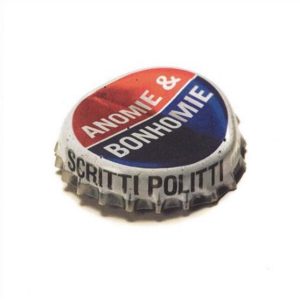 Scritti Politti
Scritti Politti
Anomie & Bonhomie
Few bands have as varied and sparse a resume as this Leeds outfit. They started off a punk band in the late ’70s; then they were soulful new wavers in the ’80s; then nothing. Now, 11 years after their last disc, SP return for the ’90s as — Michael Jackson. No kidding; the sweet studio soul of these tracks and the syrupy swirl of Green Gartside’s boyish voice suggest leftovers from The Gloved One circa 1984, with a bit of Culture Club and Simply Red thrown in for good measure. Contributions from the likes of Mos Def and rapper Lee Major and one power-pop rocker nearly drag this disc into the ’90s on occasion, but the rest of the time, Anomie & Bonhomie is, well, Bad — in the Jackson sense, if not in the literal sense.
 Mos Def
Mos Def
Black On Both Sides
Everybody in rap is so busy trying to be the hardest of the hard, outbullying each other with boasts, bellowing and belligerence. But Brooklyn’s Mos Def understands the real way to make folks listen is to rock softly but carry a big sound. So his debut disc showcases his blunted, conversational flow on flowing Afrocentric tracks reminiscent of Gil Scott-Heron and Funkadelic. There are no shout-outs, no sci-fi, no skits; just old-school verbal skills and a wide-ranging musicality that reveals a wealth of influences — from De La Soul to Bad Brains and more. Unlike most rappers, Mos Def knows there is life outside the ’hood.
 Solé
Solé
Skin Deep
The cover is certainly eye-catching — Solé naked and covered in what looks like metallic paint. Sadly, what’s inside isn’t nearly as arresting. This Atlanta-via-Kansas-City is basically just the latest member of the Female Rapper Of The Month Club, and her debut disc is just the usual assortment of expletive-laden rhymes, streetcorner tracks and the occasional attempt to show she can croon as sweetly as she can shoot off her mouth. Been there, heard that. Solé sure knows how to get your attention; now she needs to learn how to keep it.
 Julie Doiron
Julie Doiron
And The Wooden Stars
When Julie Doiron admits, “All that I can think about are fall days,” it’s not exactly a shocking revelation. Like much of her previous work, this third solo album from the former Eric’s Trip bassist is a stroll through an autumn landscape of guitar lines that flutter like blowing leaves and breezy, dusky vocals that seem warm but can chill you to the bone. Still, it’s not nearly as sombre as this spring’s heartbroken EP Will You Still Love Me. Amid the slo-mo balladry are the occasional upbeat indie-rockers, thanks to the Wooden Stars, the first band Doiron’s recorded with since ET. It seems to agree with her, putting a spring in her step. So to speak.
 June Of 44
June Of 44
Anahata
Musicians like to show off. Especially in the proggy arena of math-rock. Sadly, too many of these arty acts just don’t get it. They seem more concerned about coming up with the weirdest possible time signature and key change instead of the best song. Thankfully, June Of 44 aren’t in this group. Their bass-heavy post-rock has all the program’s required elements — jagged angularity, wonky guitar arpeggios, intricate drumwork. But it’s their form that win points. Their refreshing, off-the-cuff style has all the garage-rock immediacy of Pavement, suggesting JO44 is paying more attention to feeling and atmosphere than precision and proficiency. In other words, they get it.
 Red Stars Theory
Red Stars Theory
Life In A Bubble Can Be Beautiful
Ladies and gentlemen, they are floating in space. This Seattle indie-rock supergroup — or at least as close as you can get to one — has a stellar lineup of current and former members of Built To Spill, Modest Mouse and 764-HERO. Anyone familiar with those acts won’t be jolted by the dreamy guitar-rock melancholy on display here, elegantly augmented by sorrowful violins and lush blankets of keyboards. But that’s just the launching pad for Red Stars Theory, which blasts off into a universe of post-rock psychedelia inhabited by spacy, echoing instrumentals, throbbing cacophony and space-ghost vocals. They’ll see you on the dark side of the moon.
 Arcwelder
Arcwelder
Everest
As a post-punk power trio from Minneapolis, Arcwelder must be sick of being compared (however fairly and favourably) to Hüsker Dü. So, let me be the first to remark that Everest, their sure-footed sixth album, also reminds me of another legendary post-punk trio — The Meat Puppets. Like that trio’s Kirkwood brothers, Bill and Rob Graber’s guitar and bass weave intricate, rough-hewn blankets of sound that wrap around Bill’s dry, dusty baritone and flowing vocal style. At any second, you expect them to break into Animal. Of course, then propulsive drummer Scott Macdonald opens his mouth and lets out that yelping falsetto, and it’s howdy Dü all over again. Sorry boys, it’s true. But you must be used to that by now.
 Rachel’s
Rachel’s
Selenography
Selenography is the study of the moon’s landscape. And this fourth album from the uniquely punctuated Rachel’s is the perfect soundtrack to an all-night study session. This Louisville, Ky., chamber-folk collective — a rotating case of 10 plays on the CD — has a knack for creating a luminous and mysterious blend of elegant musicality and indie-rock sensibility. Which means that icy lunar melodies and achingly beautiful violins and harpsichords are set against sparse post-rock drums and ambient, otherworldy textures, creating a languid, floating sea of musical tranquility. Albums this delicate and intelligent come along once in a … well, you get the idea.
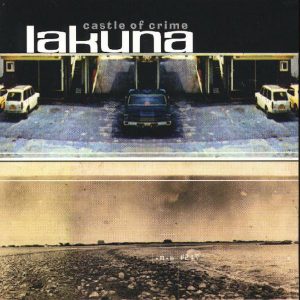 Lakuna
Lakuna
Castle of Crime
In his day job, David Narcizo keeps the beat for eccentric songstress Kristin Hersh. On this solo outing, he adds a touch of melody and harmony to his rhythm. And a touch of madness to his methodology. Castle of Crime’s eight tracks are spacious, sample-drive experiments — less actual songs than soundscapes in the manner of, say, DJ Shadow — that explore everything from contemporary trip-hop to traditional Japanese and Indian melodies. For those keeping score, Hersh and ex-Belly bassist Tom Gorman each surface on one track here. Ultimately though, these 35 minutes of meditative mood music are Narcizo’s baby. He’s got rhythm, he’s got music — who could ask for anything more?
 Slick Sixty
Slick Sixty
Nibs & Nabs
If the Chemical Brothers are the heavyweight champions of the BBWF — the Big Beat Wrestling Federation — then London trio Slick Sixty could very well be the top contenders for the tag-team belt. They’ve got the moves and the skills — lumbering, body-slamming beats, pile-driving bass lines, scratching that talks trash in yer ear and superfly, Daft Punk-ish jams that get you in a headlock until you beg for mercy. And with song titles like Hilary, Last Of The Pool Sharks, Recliner Classic and — what a coincidence — The Wrestler, well, let’s just say the Chems might need some brass knuckles in their trunks if they want to stay on top.
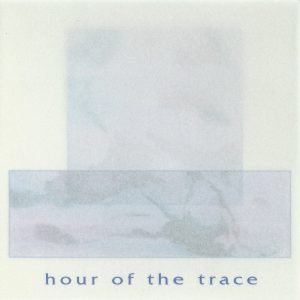 Jessica Bailiff
Jessica Bailiff
Hour Of The Trace
Duluth, Minn., is south of me, but you’d think it was the Arctic Circle from listening to this chilly sophomore CD from icy singer/songwriter Jessica Bailiff. You can practically see the frost on Bailiff’s breath as she coolly croons like Julee Cruise over a white-out backdrop of synths that swirl and drift, brittle guitars that glisten like icicles in the January sun and sweeping melodies that advance with all the speed and elegance of a lazy glacier. Is it slo-fi? Sno-fi is more like it.
 Core
Core
The Hustle Is On
“In ’75 I was barely alive,” declares twentysomething Core guitarist Finn Ryan over the bong-rattling groove of Supernumber on his band’s sophomore CD. Fittingly, most of the acts this stoner-rock power trio pays homage to here weren’t around in ’75 either — they were long gone. But obviously not forgotten. Blue Cheer, The MC5, Cream and Jimi Hendrix obviously top these Jersey devils’ playlist, and on The Hustle Is On, they summon up their spirits in a sonic seance of distortion-pedal wah-wah, psychedelic splendour and blooz-rawk glory. Core played at Woodstock ’99, but they would have fit in just as well the first time around.
 Cocteau Twins
Cocteau Twins
BBC Sessions
These Brit synth-pop icons have never been as big on this side of the pond as they are back home, where critics — with typical British restraint — compare them to “the voice of God.” Here, then, are some of God’s greatest hits and rarest tracks, recorded live in a variety of settings, from John Peel’s influential radio show to Saturday Night Live. These Sessions go from 1982 to ’96, meaning you can hear Cocteau Twins evolve from a moody, gothy, synth-driven outfit to, well, a moody, gothy, guitar-and-synth-driven outfit. Still, it’s worthy for two reasons: the unforgettable, dirgy cover of Billie Holiday’s Strange Fruit and Elizabeth Fraser’s angelic voice, which makes you think those Brit critics might just be right after all.


